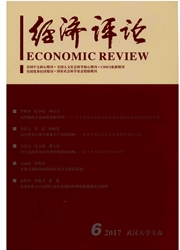

 中文摘要:
中文摘要:
为较好地反映农业生产者农药施用行为风险因素,相对精准地预测农业生产者农药施用行为的概率,本文基于贝叶斯网络的相关理论,对农业生产者农药施用行为风险因素进行识别,构建朴素贝叶斯网络模型,运用全国986个样本数据进行模型构建和验证,计算出农业生产者农药施用行为的后验概率并评估施用行为的风险。结果表明,农业生产者农药施用行为具有普遍性,农业生产者在农业生产经营类型、农业生产土地规模以及农产品用途等风险因素分别既定的情况下,不考虑施药间隔期的风险概率较大;农业生产者在产品预售价、农药价格等风险因素既定的情况下,对农药残留的在意程度出现波动,且农药价格是造成农业生产者农药残留意识淡薄风险的重要因素;另外,农产品预售价对农业生产者过量施用农药风险也有较大影响。因此,政府应有针对性地开展农业生产者农药施用培训,积极引导农业生产者合理施用农药,强化农产品安全风险的事前监管。
 英文摘要:
英文摘要:
In order to reasonably reflect risk factors of farmers pesticide behavior and accurately predict the probability of farmers pesticide application behavior,this article identifies the behavior risk factors of farmers pesticides application,based on a naive Bayesian network model. Applying data of 986 samples in China,after training and validating the model,this article calculates the posterior probabilities of farmers pesticides application behavior and assesses risk of this behavior.The results show that almost all of the farmers use pesticides. Given the agricultural production type, agricultural land scale, and products usage, the risk of unplanned spraying intervals probability would be greater. If pre-sale price of products and the pesticides price are established respectively, the fluctuation appears on how farmers mind pesticide residues. Low price of pesticides is the main reason why farmers ignore pesticide residues. In addition,the pre-sale price of agricultural products has a great impact to excessive use of pesticides. Therefore,pesticides application training should be considered. And the authority should guide and encourage farmers using pesticides reasonably. The government should strengthen the proactive regulation and supervision of the agricultural products also.
 同期刊论文项目
同期刊论文项目
 同项目期刊论文
同项目期刊论文
 期刊信息
期刊信息
